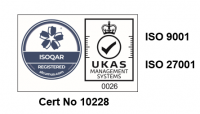Right to Work Checks: Now Mandatory in the Gig Economy
April 7th, 2025 by Daisy Birch
Companies operating in the UK’s gig economy are now required to carry out right to work checks to confirm that all individuals that work on their behalf are legally allowed to work in the country.
What Has Changed?
For the first time, businesses hiring individuals for gig economy roles are legally obligated to perform right to work checks. This new requirement ensures that workers have the legal right to work in the UK before they are employed.
The gig economy refers to a labour market where individuals are paid on a per-task basis rather than being employed under traditional contracts. Common examples include drivers, food delivery couriers, and freelance professionals.
Who Is Affected?
The changes will impact thousands of companies operating in sectors such as:
- Construction
- Food delivery services
- Convenience stores
- Beauty and personal care
- Courier and logistics services
This also extends to zero-hours contracts and other non-traditional work arrangements, where the risk of non-compliance has historically been higher.
Consequences of not completing compliant right to work checks
Consequences of not completing compliant right to work checks
Failing to conduct a compliant right to work check can result in severe penalties, including:
- Fines of up to £45,000 per illegal worker, rising to £60,000 for repeat offences
- Business closures
- Director disqualifications
- Potential prison sentences
These measures form part of a broader crackdown on illegal working and labour exploitation.
Why Are These Changes Being Introduced?
The crackdown comes ahead of the UK’s first Organised Immigration Crime Summit, part of a wider effort to dismantle international smuggling networks. The government is focusing on curbing illegal working, which is often linked to broader criminal exploitation and false promises made to migrants.
Officials argue that extending right to work check requirements is crucial to restoring integrity to the UK’s immigration system. It also addresses long-standing concerns about the exploitation of vulnerable workers, particularly by digital platforms operating in the gig economy.
What steps can employers take to ensure right to work compliance?
There are several key steps that employers can take to ensure compliance with right to work legislation:
- Audit – Regularly review employee records to highlight any shortfalls in compliance.
- Review policies – Ensure all policies are up to date to reflect the current legislation and guidance.
- Train staff – Ensure that your HR team are familiar with your right to work policy by conducting refresher training.
- Use technology – Compliance can easily be monitored by using the right technology. If you are to use an IDSP, make sure they are government certified. You can find DDC on the List of certified digital identity and attribute services





